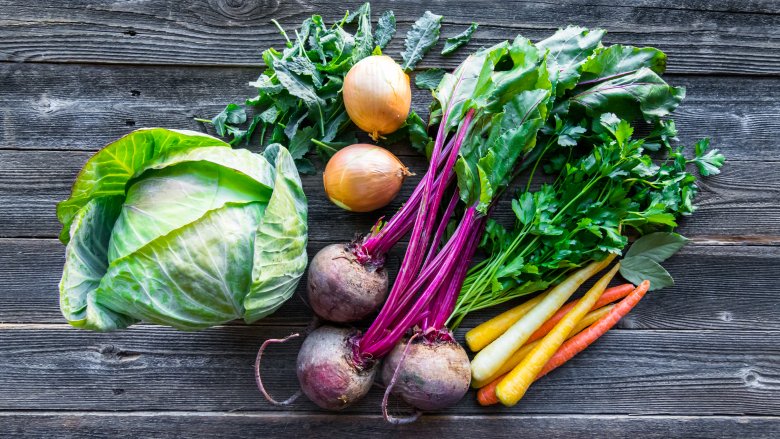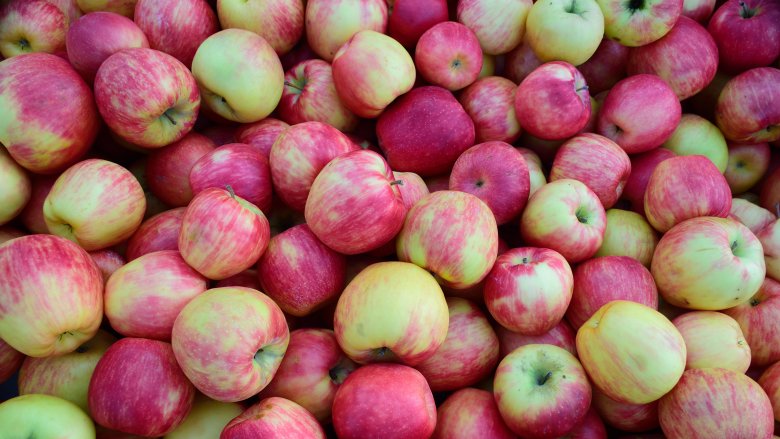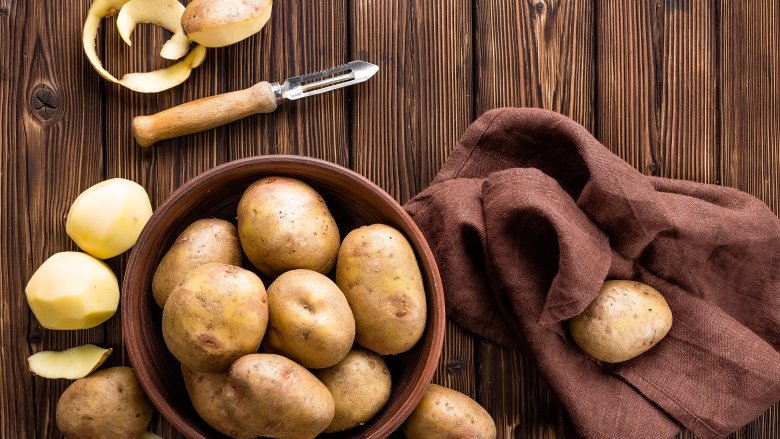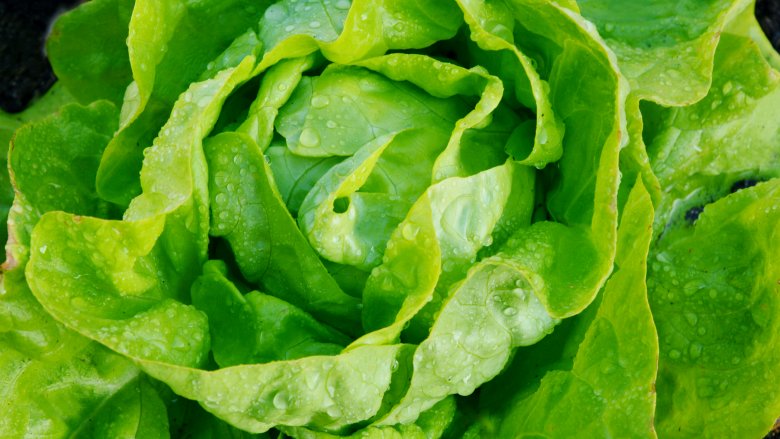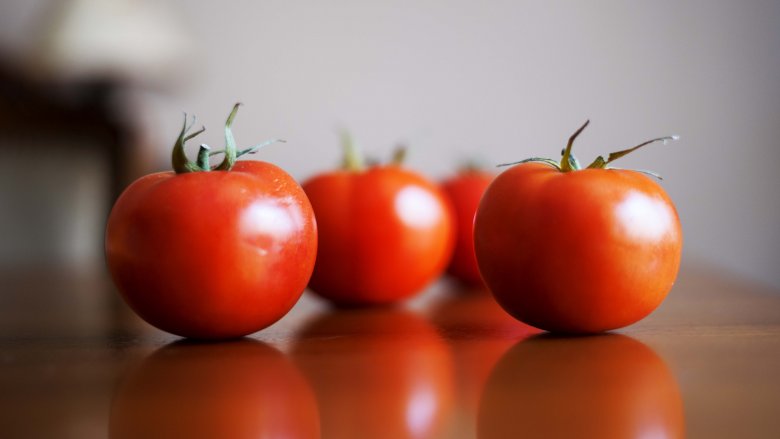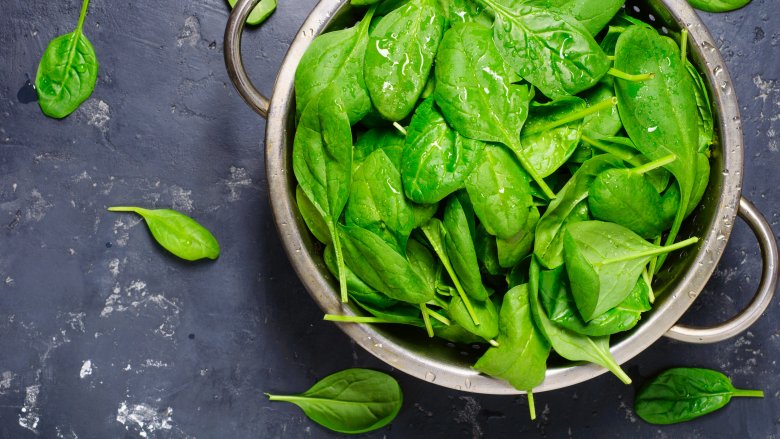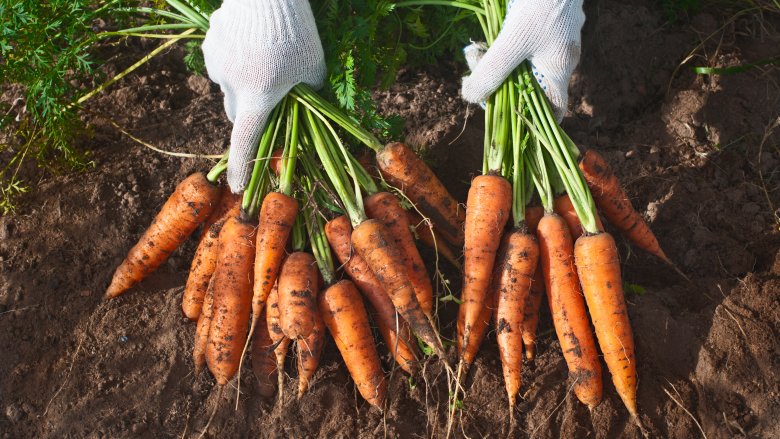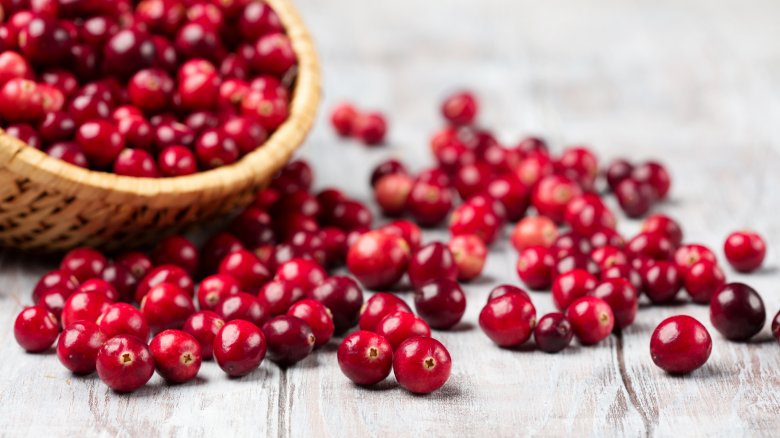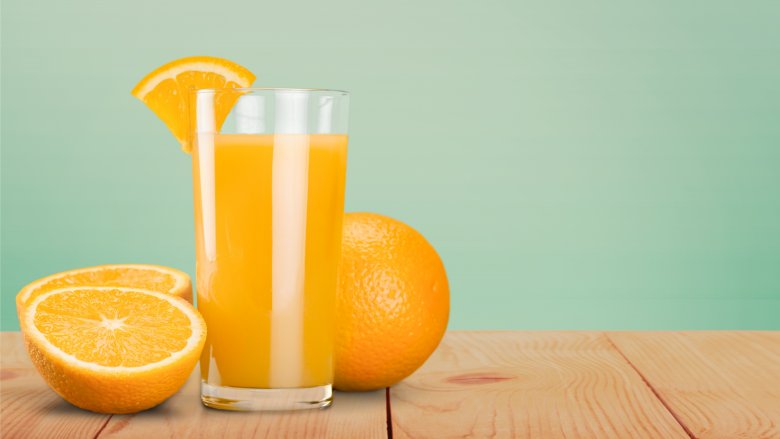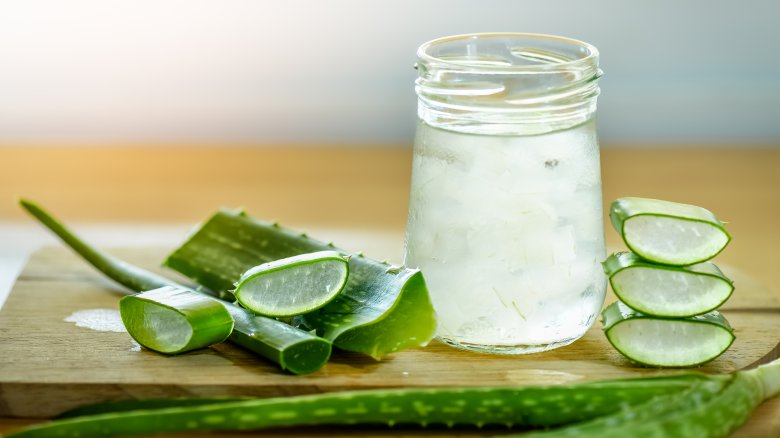How Old Is The Produce We Eat Really?
Whenever you go to the grocery store, you shop the perimeter, choosing healthy dairy, lean meats, and "fresh" fruits and veggies. You follow all of the healthy eating rules you're told to follow by health and wellness experts. How "fresh" is that produce you're picking up, though, really? Is it newly harvested, fresh from the ground, trees, bogs, or bushes? Or is it actually much older than that? Part of the answer depends on where you purchase said produce. If you shop at organic, growers-only farmer's markets, it's likely that much of the produce you're purchasing is relatively fresh. If you're relying exclusively on large, national chain supermarkets, however, that produce you're buying might not actually be as fresh as you think. It might actually have been in storage weeks or even months before you took it home to eat. Here's how old the produce in your grocery store is really.
Apples
You know that "apple season" in the much of the United States is in the fall, so if you purchase apples in April, July, or January, you're likely aware that they're either not farm-fresh, or had to come quite far in transit. According to Delish, the apples that you buy in a run of the mill supermarket are chemically treated to stop them from rotting, and then stored for nine to 12 months before hitting shelves. Not as fresh as you may think.
Potatoes
Even from farmers markets, potatoes are often stored for awhile because, simply put, they can be. According to the website for the Washington Potatoes industry group, potatoes can be stored for up to 11 months after being harvested, prior to being sold. Some are sold immediately, but others could hang around in a warehouse for awhile.
Lettuce
Lettuce doesn't hang out for months, but it still might not be as fresh as you'd think. As journalist and author Jo Robinson told NPR's Fresh Air (via Mother Jones), bagged lettuces can be two weeks old, meaning they've lost some of their health benefits by the time you actually eat them. If you're adding extra salads to your diet specifically for the health benefits from lettuce and the like, you might be disappointed to hear that there might not be as many as you thought if you're relying on prepackaged greens.
Tomatoes
Out of season tomatoes aren't the tastiest, but they may also have been stored for awhile. According to The Guardian, tomatoes grown and harvested in California have been stored for up to six weeks before being sold, while tomatoes from Britain may be stored for only about a week before hitting grocery store bins.
Spinach
Like lettuce, spinach is often several weeks old. According to Naturally Savvy, spinach leaves are often picked several weeks before being packaged and/or processed and transported to the stores where the leaves will be sold. If you're only eating spinach because you think it's super fresh and healthy, it may or may not be all that it seems.
Carrots
The carrots that you buy and bring home might seem to be the freshest of the fresh, but they actually may not be as newly grown and harvested as you think. According to The Guardian, carrots sold in grocery stores can be stored anywhere from one to nine months, depending on how they've been processed. If they still have their greens attached, they'll be more perishable, while other mature carrots will last far longer.
Cranberries
Unlike many other types of fresh fruits and vegetables that are stored for awhile before being sold, cranberries are actually often transported to the grocery stores where they will be sold relatively soon after being harvested. According to the website for the Massachusetts Cranberries industry group, you can buy fresh cranberries in September, October, and November, while, at other times of the year, frozen cranberries are your best bet.
Orange juice
While, of course, technically not fresh produce, orange juice may not be as fresh as you'd think it is, either. In an interview with boston.com, author Alissa Hamilton said that when orange juice is processed and pasteurized, it's deoxygenated, which means it will keep longer. It's then "...put in huge storage tanks where it can be kept for upwards of a year." If you like orange juice, there may or may not be anything wrong with drinking it, but if you're doing so for health reasons, it might be better to just reach for an orange itself, Hamilton said.
Aloe leaves
At some grocery stores, farmers' markets, and farm stands, you can pick up whole aloe leaves in the produce section. Fresh leaves are nice and green, while old leaves are speckled with brown spotting. It's easy to see visually, then, if the aloe you're planning to buy is fresh or if it's been lying around for awhile.
While it may or may not ultimately matter to you how old the produce you're buying really is, as the saying goes, knowledge is power.
